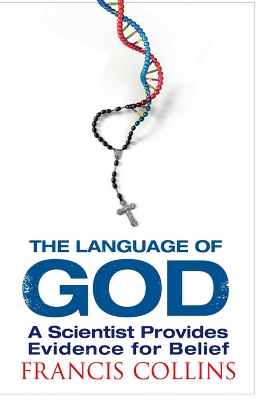Reviewed by empressbrooke on
The Language of God is a well-written, easily-read rumination on the conflict between science and religion and why the author (along with many in the scientific community) feels this conflict doesn’t need to exist. Despite arguing from a believer’s point of view, Collins spends quite a bit of time shooting down creationism, Biblical literalism, and Intelligent Design. He advises against using God to “fill in the gaps” in current scientific knowledge and instead encourages believers to base their faith on something more stable. He points to history to illustrate that current arguments that require a literal reading of the Genesis are relatively new and that pre-Darwin religious thinkers didn’t hold the same views that current conservative religious folks do.
The only downside from my point of view is that Collins is Christian; I feel like I've spent enough time reading about how people arrived at their faith in Jesus. I'd love to read something written from the perspective of someone who became just about anything else, just for the sake of hearing some different experiences. To Collins' credit, though, in the few times he discusses the Bible, he refers to the original Hebrew. He also acknowledges several times that although his exploration of his personal beliefs brought him to Christianity, that every person will find what is right for them. A strike against him, though, is his use of the phrase "Judeo-Christian" several times, especially in reference to religious texts. That phrase needs to be disposed of and never used by anyone ever again.
The book ends with an appendix detailing some current bioethics concerns, and while it's interesting (especially since a bioethics class I took with [a:Lori Andrews|18121|Lori Andrews|http://www.goodreads.com/images/nophoto/nophoto-U-50x66.jpg] was one of my more interesting law school classes), I'm a little puzzled about its placement in this book.
Reading updates
- Started reading
- 6 September, 2010: Finished reading
- 6 September, 2010: Reviewed
